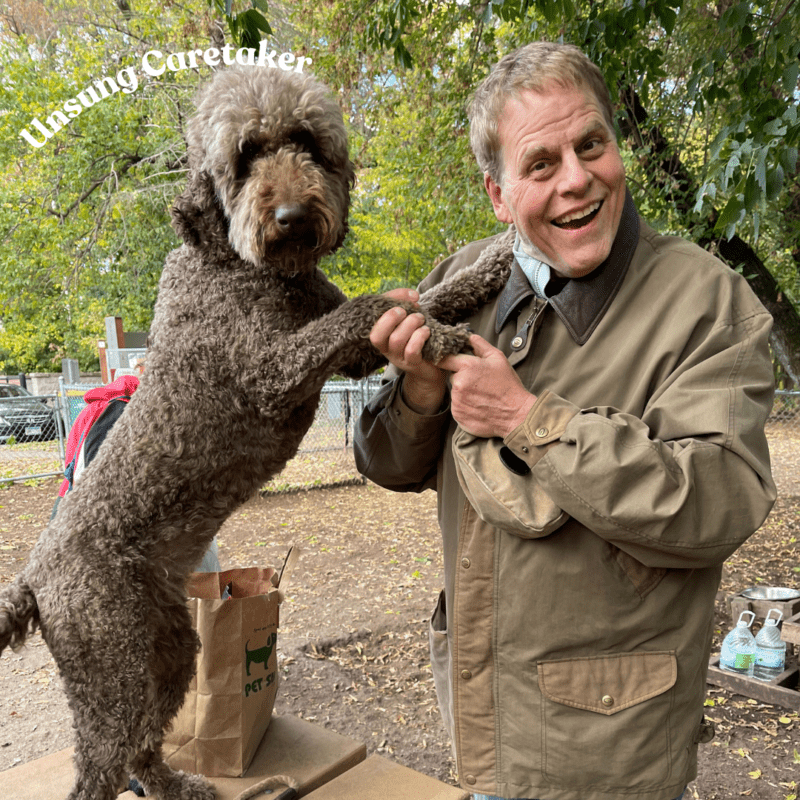
Written by John Fennig, a 2024 Upstream Unsung Caretaker
Dr. John Fennig, 64, has spent 40 years of his life in Minnesota – first at St. John’s University where the 2,000 acres of woods called regularly for hiking, biking, cross country skiing, and camping out. In 1988 he moved back from grad school in psychology and has not left since. He chose to return in large part for the 4 seasons of activities (a reason those in MN live longer than all in the US except Hawaii). He has cross country ski raced, avidly biked and boated.
John has had the honor of advising park and recreation departments of major cities in Minnesota. He recognizes the natural tension and even conflict between Parks (nature untouched and at her best) and Recreation (created out of nature for people to use comfortably and actively). For example: ensuring swimmable water at the North Oaks beach also means reducing the number of geese, for example, who have increased significantly in numbers and whose waste is harmful to humans. Creating trails and courts and venues for people to use means intruding into nature to do so. Creating dog parks means also creating parking lots and having a large number of people come to a small lovely area.
John’s favorite places in Minnesota:
- Ramsey County Otter Lake Dog Park (15 years with 2 great dogs). John has been the lead volunteer here for 6 years. Ramsey County empowers the users at each of the 4 parks to take full ownership of park to be stewards and caretakers and improvers of them. The County then handles the big stuff – trash, snow plowing and major tree management.
- The trails, beach and tennis/pickleball courts in North Oaks. John serves as volunteer head of Park and Recreation for this private community with its 5,000 acres, 30 miles of trails and several lakes. 2,000 members.
- Most any golf course in Minnesota – with the hills and trees and wildlife to augment the round!
John’s hopes for Minnesota’s natural spaces:
- That we recognize that our natural resources need to be actively managed. Just leaving things alone means many negative things in our present state. Managing woods and waters and species of animals is needed to ensure all can thrive.
Wisdom from John about being a good steward
- It is a balancing act of provisioning for the immediate needs of nature and the people in it, while taking into account the long term impact of a decision (to cut something down, or put something up, or kill some wasps, etc.)
- Our significantly different seasons require different things of us and decisions and actions in one season can and do impact nature and parks and such in the other seasons.
- Humility is key. As fictional character Quebec Chief Superintendent Armond Gamache says – a leader needs to be able to say these 4 things: I was wrong, I am sorry, I don’t know, I need help, and nature is so vast and complex that being a responsible part in and amongst her makes these 4 mindsets and statements all the more vital.
What’s Your Upstream Story?
We share stories of stewardship written by and about Minnesotans like you! Share your story here.